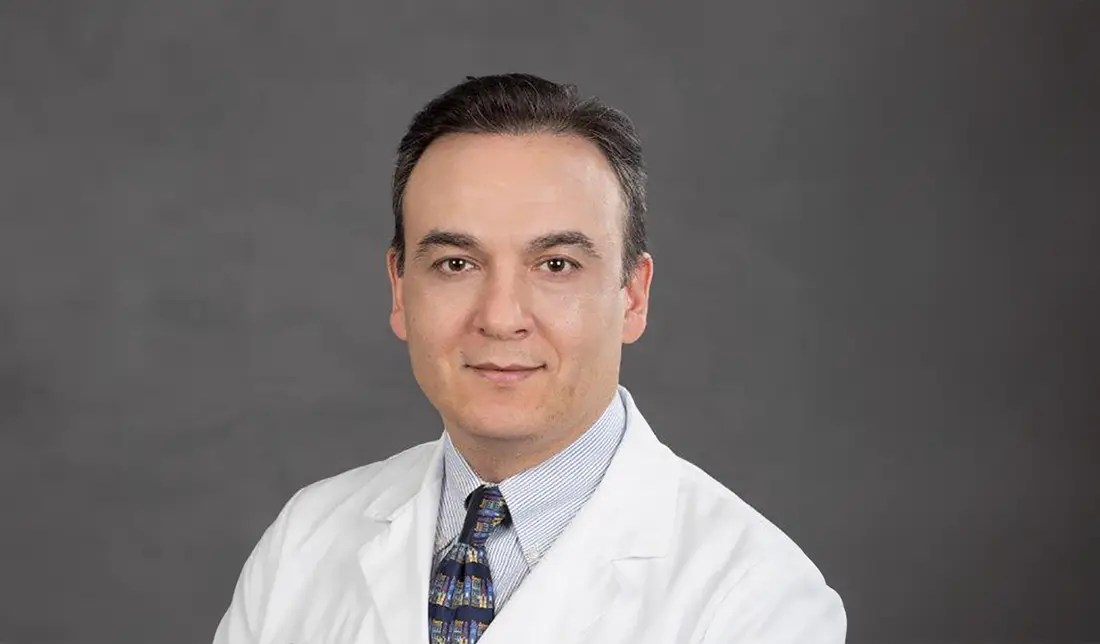By: Chad Hanson | October 17, 2025 | 5 min. read |

Summary
Hearing loss affects one in 500 newborns and nearly half of adults older than 65. Most hereditary forms of hearing loss have been considered irreversible.
A new study led by researchers at the University of Miami Miller School of Medicine and international collaborators has uncovered a potentially treatable genetic cause of hearing loss.
The study used genetic, cell and animal studies to show mutations in the gene encoding carboxypeptidase D disrupt hearing, and that relatively simple treatments can improve symptoms.
Hearing loss is a life-altering condition that affects millions worldwide, including one in 500 newborns and nearly half of adults older than 65. While genetic factors are a major contributor, most hereditary forms of hearing loss have been considered irreversible.
But a new study led by researchers at the University of Miami Miller School of Medicine and international collaborators has uncovered a potentially treatable genetic cause of hearing loss, offering new avenues for effective treatment and hope for affected people and families. The research was published in the Journal of Clinical Investigation on Sept. 30.
Gene Mutations that Impact Hearing
The research team, led by Mustafa Tekin, M.D., professor and chair of the Dr. John T. Macdonald Foundation Department of Human Genetics, identified rare mutations in the gene encoding carboxypeptidase D (CPD) in several individuals from three unrelated families with congenital or early-onset deafness. These mutations disrupt the enzyme’s ability to process arginine, a key amino acid needed for producing nitric oxide. That molecule is essential for the survival of cochlear cells.
 Dr. Mustafa Tekin and team found mutations in the gene encoding carboxypeptidase D can disrupt hearing.
Dr. Mustafa Tekin and team found mutations in the gene encoding carboxypeptidase D can disrupt hearing.
The study found that these mutations are more common in people with hearing loss than in the general population, based on data from the 100,000 Genomes Project.
Study Methodology: A Multilayered Approach to CPD Mutations
Dr. Tekin and colleagues used a multi-layered approach to identify the problematic CPD mutations and explore remedies:
• Genetic analysis: Genome and exome sequencing pinpointed CPD mutations in affected families. Population-level analysis confirmed the link between CPD variants and hearing loss.
• Cellular studies: Patient-derived fibroblasts showed reduced levels of arginine, nitric oxide and cyclic guanosine monophosphate (cGMP), leading to increased oxidative stress and cell death. Supplementing these cells with arginine restored nitric oxide and cGMP levels and reduced apoptosis.
• Pre-clinical models: CPD was found to be widely expressed in the mouse cochlea. Silencing CPD in mouse cochlear cultures triggered cell death, which could be partially rescued by arginine supplementation. Flies lacking the CPD ortholog (“silver” gene) exhibited structural and functional defects in their hearing organs, impaired auditory transduction and abnormal movement behaviors. Feeding these flies arginine or sildenafil (a cGMP enhancer) improved their sensory and motor functions.
This comprehensive study used genetic, cell and animal studies to show CPD mutations disrupt hearing, and that relatively simple treatments can improve symptoms.
Why This Research is Important
This research offers hope for individuals with hereditary hearing loss caused by CPD deficiency. Unlike most genetic forms of hearing loss, which are typically irreversible, the study shows that simple interventions, such as dietary arginine supplements or medications that boost cGMP signaling, can restore key cellular functions and reduce cell death in the ear.
These findings mean that patients with CPD-related hearing loss may have access to new, non-invasive treatment options that could improve hearing outcomes and quality of life. Genetic testing can help identify those who may benefit, paving the way for more personalized and effective care.
This research is a powerful example of how genetics, biochemistry and translational science can converge to reveal not only the roots of disease but also new hope for patients. While further studies are needed, including clinical trials and more extensive animal testing, the discovery of a treatable pathway for hereditary hearing loss is a major step forward.
Tags: deafness, Dr. John T. Macdonald Foundation Department of Human Genetics, Dr. Mustafa Tekin, gene editing, genetics, hearing loss

